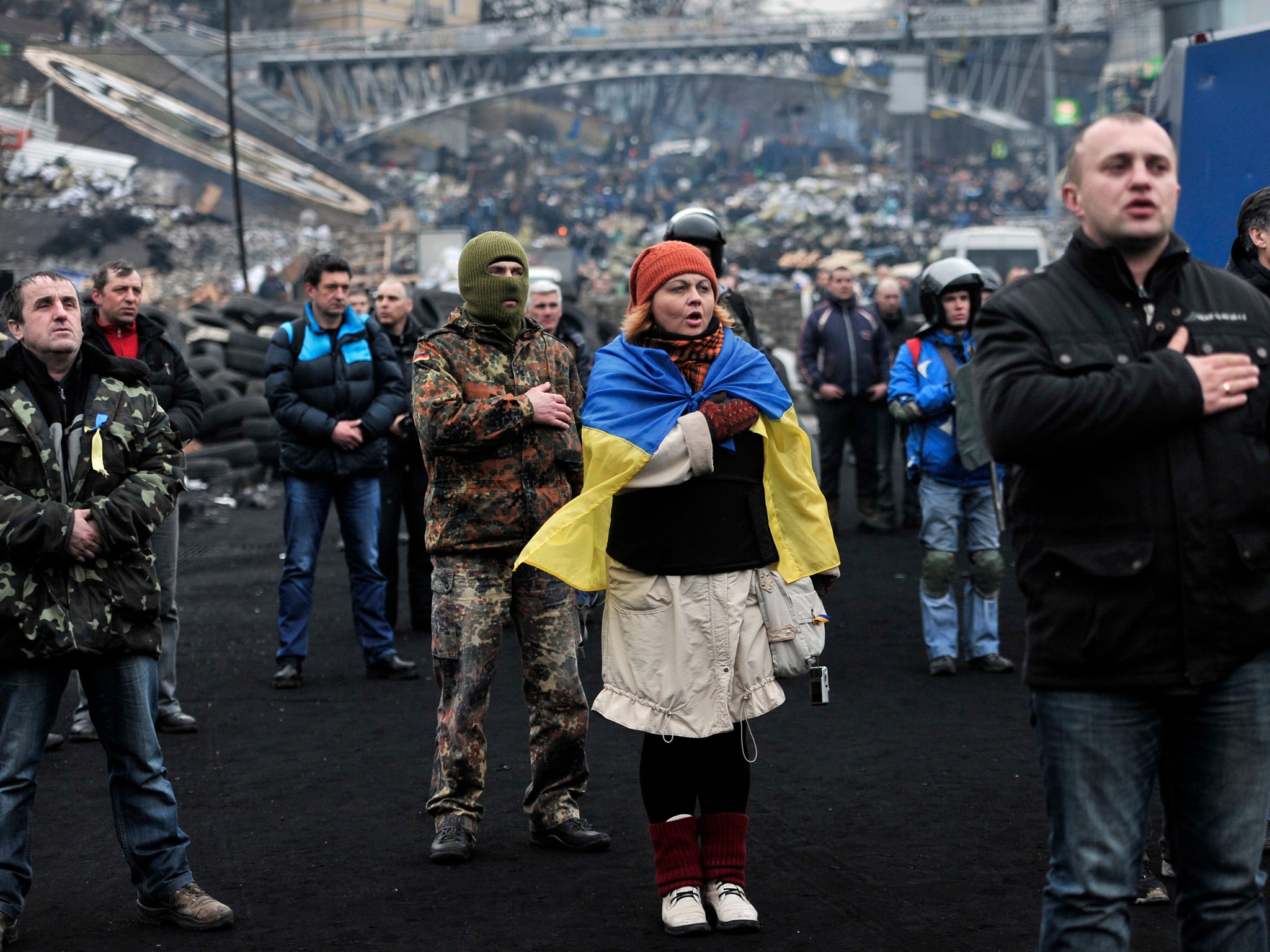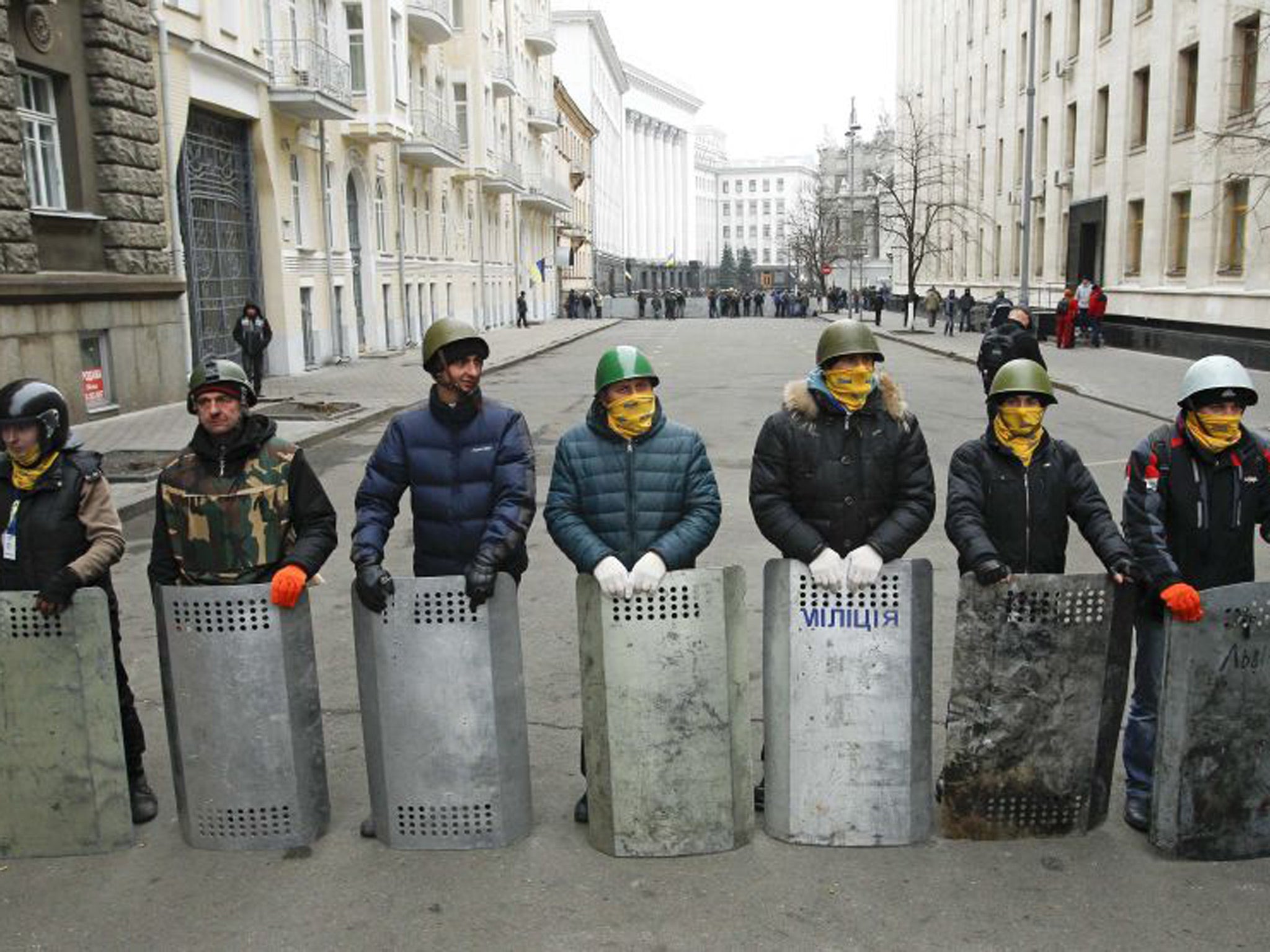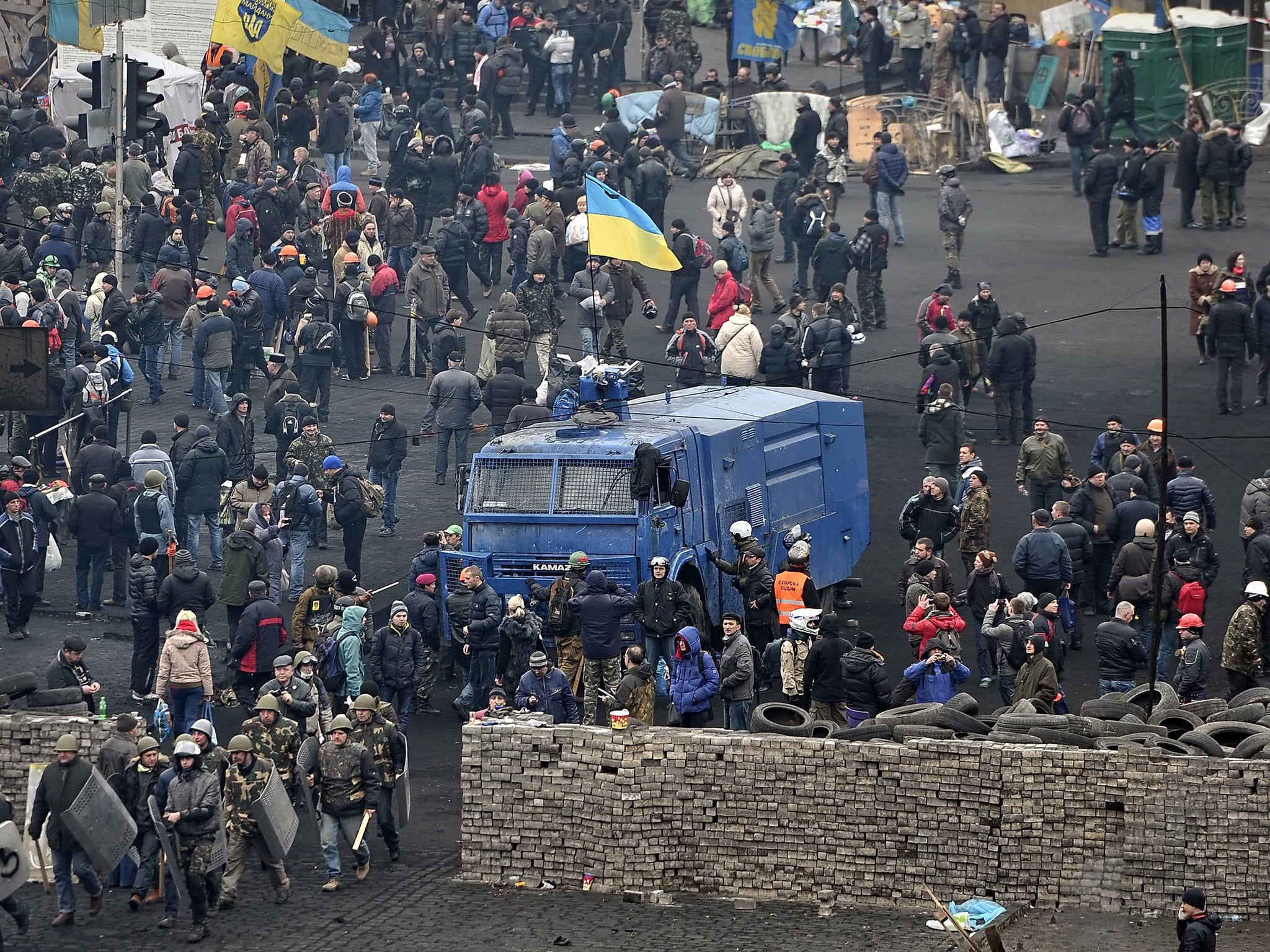Ukraine President Viktor Yanukovych denies resignation claims as security chiefs withdraw from conflict with people
Demonstrators take control of government buildings in Kiev despite Friday's pact to restore 2004 constitution

Your support helps us to tell the story
From reproductive rights to climate change to Big Tech, The Independent is on the ground when the story is developing. Whether it's investigating the financials of Elon Musk's pro-Trump PAC or producing our latest documentary, 'The A Word', which shines a light on the American women fighting for reproductive rights, we know how important it is to parse out the facts from the messaging.
At such a critical moment in US history, we need reporters on the ground. Your donation allows us to keep sending journalists to speak to both sides of the story.
The Independent is trusted by Americans across the entire political spectrum. And unlike many other quality news outlets, we choose not to lock Americans out of our reporting and analysis with paywalls. We believe quality journalism should be available to everyone, paid for by those who can afford it.
Your support makes all the difference.A spokesman for the President of Ukraine has denied that he will be offering his resignation as four heads of security forces, including the police's Berkut anti-riot units, told parliament that they will withdraw from all conflict, which has so far killed at least 77 in the country.
The AFP news agency tweeted this afternoon that Viktor Yanukovych pledged to resign, quoting a Ukraine lawmaker, but this was later rebuffed by the president's spokesperson. The four security leaders represented the paratroop unit of the military, the Berkut anti-riot police, Alfa special operations unit and military intelligence. The Interior Ministry had already signalled its allegiance to anti-government protests under a new minister from the ranks of the opposition.
The country had been in a state in uncertainty this morning with no sign of the President in Kiev and the streets empty of his security forces.
Members of the public, including journalists, were able to enter his residential complex, which was being guarded by protesters armed with clubs.
The doors to the building were locked and we were told by the “self defence volunteers” that ministers would be allowed in to conduct official business.
At Independence Square, Maidan, where the opponents of the government had based themselves since unrest began four months following the President’s refusal to sign an accord with the European Union, some believed that an alternative administration would be in place in days made up of opposition politicians.
At the same time, rumours were circulating in the city that the government had fallen and Mr Yanukovich had fled the country, with Russia a favoured destination.
“He's not here [in Kiev], none of his officials or anyone linked directly to the administration are here,” Ostap Kryvdyk, a protest leader, told reporters in the grounds of the presidential administration building.
Reuters quoted a “senior security source” who claimed Mr Yanukovych was still in the country.
“Everything is ok with him,” the source said. “He is in Ukraine.” Asked whether the embattled leader was in the capital, he replied: “I cannot say.”
Hanna Herman, a close aide of the President, told reporters he was visiting the city of Kharkiv in east Ukraine, where many of his supporters are based.
Some were concerned that Mr Yanukovich was in the process of mobilising his supporters from the pro-Russian area to carry out a counter-coup.
Right-wing fringe groups, who had played a prominent part in the street protests, were calling up reinforcements to “defend the people”.
Read more:
Saturday’s extraordinary developments followed the signing of an agreement between the government and the opposition, brokered by the European Union, under which an interim cross-party administration was due to be formed and elections held by December, three months ahead of schedule.

The 2004 constitution was to be restored within 48 hours and a national unity government formed within 10 days before constitutional reform starts to balance the President's powers with that of government and parliament.
A presidential election will be held no later than December 2014 and an investigation into acts of violence will be monitored by the Council of Europe.
The agreement promises that authorities will not impose another state of emergency and “refrain from the use of violence” after reports that police opened fire on protesters.
But it may be too little, too late to pacify anti-government protesters who united in spite of dramatically differing political views with the sole aim of ousting Mr Yanukovych.
Opposition leaders were reportedly booed on Friday as they spoke to crowds following the deal, which many do not trust.

William Hague, the Foreign Secretary, urged all sides to adhere to the agreement “in good faith” and pledged the UK’s support through transition.
An emboldened parliament also voted to free Yulia Tymoshenko, the former prime minister and implacable enemy of Mr Yanukovich who is serving a seven year sentence after being convicted of abuse of power.
Ukrainian lawmakers then voted in favour of accelerating her release under quicker procedures, without requiring the President's endorsement.
As parliament met today, Vitaly Klitschko, leader of the opposition Udar party, told MPs the President had left Kiev.
He added: “We must, as the people demand, adopt a resolution calling on Yanukovych to immediately resign.”
Ukraine's parliamentary speaker Volodymyr Rybak became the latest high-profile Yanukovych loyalist to resign on Saturday.
Oleksander Turchynov, a senior member of the opposition Fatherland Party and ally of jailed former Prime Minister Yulia Tymoshenko, was elected by parliament to replace him.
A large number of MPs from the President’s party has defected and so, in small numbers, are members of the security forces.
The crowd at the Maidan were chanting: “Yanukovych, you’re finished. Go to hell.”
Additional reporting by Lizzie Dearden
Join our commenting forum
Join thought-provoking conversations, follow other Independent readers and see their replies
Comments